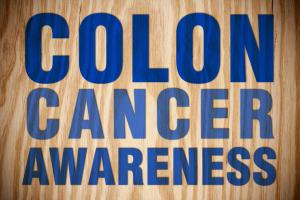Dr. David Samadi: Four essential cancer screenings men need
Prostate cancer, Colon Cancer and Testicular cancer are some of the few cancers that screening plays a vital role in detection, cure when it is diagnosed early.
“Getting routine health screenings may be the last thing on most men’s minds yet they really should be one of the first,” explained Dr. David Samadi, Director of Men’s Health and Urologic Oncology at St. Francis Hospital on Long Island. “Men are 24 percent less likely to visit their doctors in any given year than women and 22 percent less likely to get their cholesterol checked. This also includes their hesitation on getting screened for cancer, despite the fact their cancer mortality rates are higher.”
“In my field as a urologist, prostate cancer is the leading cancer diagnosis among men and the third most common diagnosis overall with 191,930 expected cases in 2020,” said Dr. David Samadi. “Prostate cancer in the early stages usually has no symptoms. Annual screenings for this cancer should begin at age 40 to establish a baseline and then the frequency thereafter depends on family history of this cancer and ethnicity.”
Dr. Samadi’s top four cancer screening tests all men need include checks for prostate cancer, testicular cancer, colorectal cancer and skin cancer.
Prostate cancer screening
The most common cancer in men is prostate cancer other than skin cancer. The majority of prostate cancers are slow-growing but some can be aggressive and fast-growing types as well.
“Men who schedule regular prostate cancer screenings beginning at age 40, will have an excellent change of recovery if any disease is found,” said Dr. Samadi.
Screening tests for men for prostate cancer include a simple blood test called a prostate specific antigen (PSA) and a digital rectal exam.
Testicular cancer
Even though testicular cancer is not very common, the incidence rate of it has been increasing in the United States and many other countries for several decades.
Men, who are at the greatest risk of developing testicular cancer, are between the ages of 20-34, with 33 being the average age at the time of diagnosis. Only nine percent of men with testicular cancer are older than 50.
“It’s necessary for men, especially within these age ranges, to do a monthly self-examination of the testes,” advised Dr. Samadi. “If any lumps, bumps or other changes are noticed, they need to see their doctor as soon as possible as testicular cancer has a very high cure rate.”
Colorectal cancer
Colorectal cancer is the third leading cause of cancer-related deaths in men. This cancer begins in the colon or rectum starting out as a growth called a polyp on the inner lining of the colon or rectum. Some types of polyps can change into cancer but not all polyps are cancerous. The most effective way to prevent colorectal cancer is to find and remove the colon polyps before they turn cancerous. The most common test to detect polyps and colorectal cancer is to have a colonoscopy done beginning at age 50 or younger if colorectal cancer runs in your family.
Skin cancer
The most common cancer found in men is skin cancer with the most dangerous form being malignant melanoma. Men not only have a higher risk of developing this deadly skin cancer than women but also have a higher death rate.
“Men tend to get more ultraviolet exposure because of their jobs and consequently more sunburns,” stated Dr. Samadi. “If men skip using sunscreen regularly, they’re at a greater risk of developing deadly malignant melanoma that’s harder to treat. Seeing a dermatologist yearly for a full body skin check along with performing their own skin self-exams, help find suspicious looking changes in skin.”
Dr. Samadi’s last bit of advice, “Be proactive with your health. Cancer screenings can and do save lives. Take advantage of them to take charge of your health.”
Dr. David Samadi is the Director of Men’s Health and Urologic Oncology at St. Francis Hospital in Long Island. He’s a renowned and highly successful board certified Urologic Oncologist Expert and Robotic Surgeon in New York City, regarded as one of the leading prostate surgeons in the U.S., with a vast expertise in prostate cancer treatment and Robotic-Assisted Laparoscopic Prostatectomy. Visit Dr. Samadi’s websites at robotic oncology and prostate cancer 911.
Dr. David Samadi, M.D.
roboticoncology
+1 212-365-5000
email us here
Visit us on social media:
Facebook
Twitter
Legal Disclaimer:
EIN Presswire provides this news content "as is" without warranty of any kind. We do not accept any responsibility or liability for the accuracy, content, images, videos, licenses, completeness, legality, or reliability of the information contained in this article. If you have any complaints or copyright issues related to this article, kindly contact the author above.


